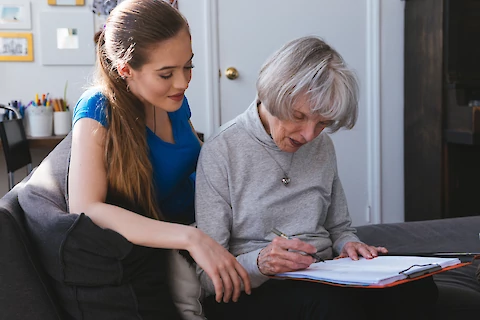
Understanding and planning for end-of-life care for a loved one can be a challenging, yet crucial responsibility. It requires medical knowledge, legal know-how, and emotional strength. However, planning end-of-life care is essential to ensuring your senior loved one receives the care they want and need in their final days.
Understanding End-of-Life Care
End-of-life care refers to the support and medical care given during the time leading up to one's death. This phase can last from a matter of months to years. Family caregivers often play a fundamental role during this period, acting as intermediaries between their loved ones and the medical team. Given its inevitability, planning for end-of-life care is as important as any other life event.
Medical Decisions
One of the first steps in preparing for end-of-life care involves discussing and understanding your loved one’s medical preferences. These choices may pertain to the type of care they want to receive, the environment they wish to be in, and their feelings toward life-prolonging treatments. Engage healthcare professionals in these discussions as they can provide valuable insights, ensuring your loved one receives the best possible care tailored to their needs.
Legal Documentation and Estate Planning
Legal documentation is an equally important aspect of planning end-of-life care. It’s a challenging task that requires a delicate balance of medical decisions, legal documentation, emotional support, and choosing the right care option. It ensures your loved one's final days are spent with dignity, comfort, and peace.
Documents such as a living will or a healthcare power of attorney can provide clear guidance on healthcare decisions when the person can no longer communicate their wishes. Estate planning is also fundamental in ensuring the proper distribution of assets according to the person's wishes. Consider seeking professional guidance to ensure proper handling of the legalities.
Emotional Support Considerations
End-of-life care is not merely about physical health and legal affairs; emotional well-being plays a vital role in this stage of life. As a caregiver, providing emotional support to your loved one is as crucial as handling medical or legal matters. This could involve listening to their fears and concerns, offering comforting words, or simply being present. Support groups and counseling services can also be beneficial, providing a space for caregivers and patients to share experiences and feelings.
Options for End-of-Life Care
Multiple options are available for end-of-life care, each tailored to the individual’s unique needs. Hospice care, for instance, aims to make the person comfortable and improve the quality of life as death approaches. It may take place at home or in a hospice facility. On the other hand, palliative care seeks to relieve the symptoms and stress related to serious illness, regardless of prognosis. The choice between the two would depend on the person's medical needs and preferences.
Get Support From Senior Helpers Murrells Inlet
Planning end-of-life care for a loved one is a challenging task that requires a delicate balance of medical decisions, legal documentation, emotional support, and choosing the right care option. Despite its difficulties, it is a task of utmost importance to ensure your loved one's final days are dignified, comfortable, and peaceful.
If you’re in Murrells Inlet, Myrtle Beach, Little River, Conway, and Georgetown seeking assistance and support for yourself or a senior loved one, Senior Helpers Murrells Inlet is here to help. Our team is committed to navigating the challenges and joys of your retirement years with you. Contact us today to learn more.